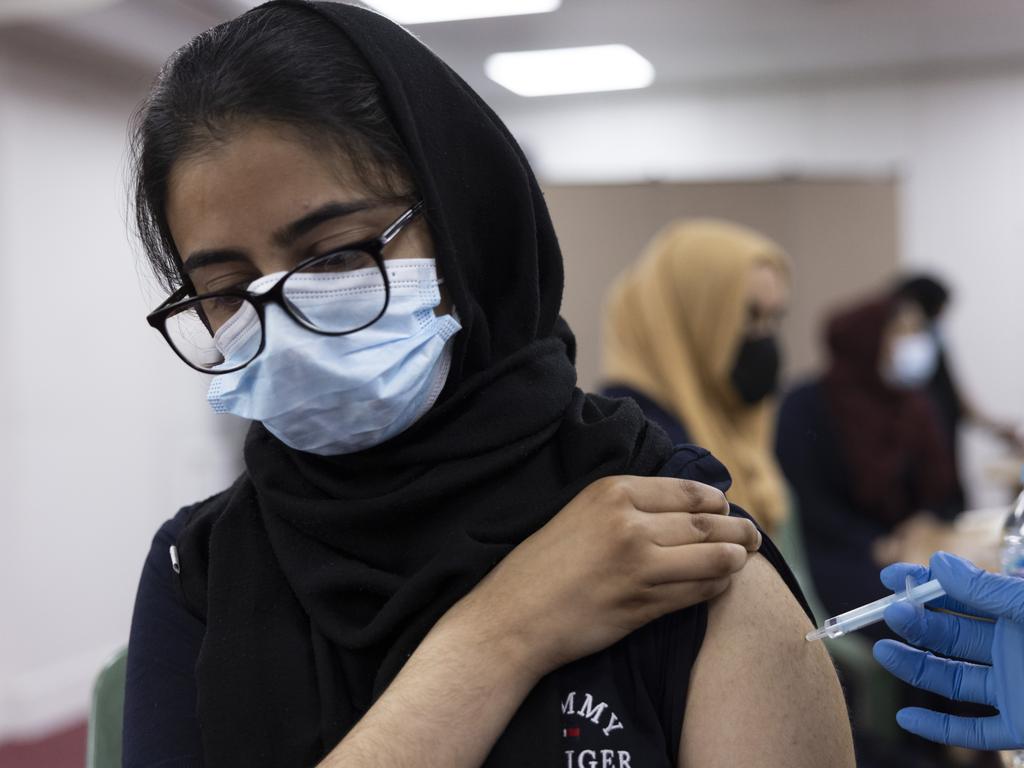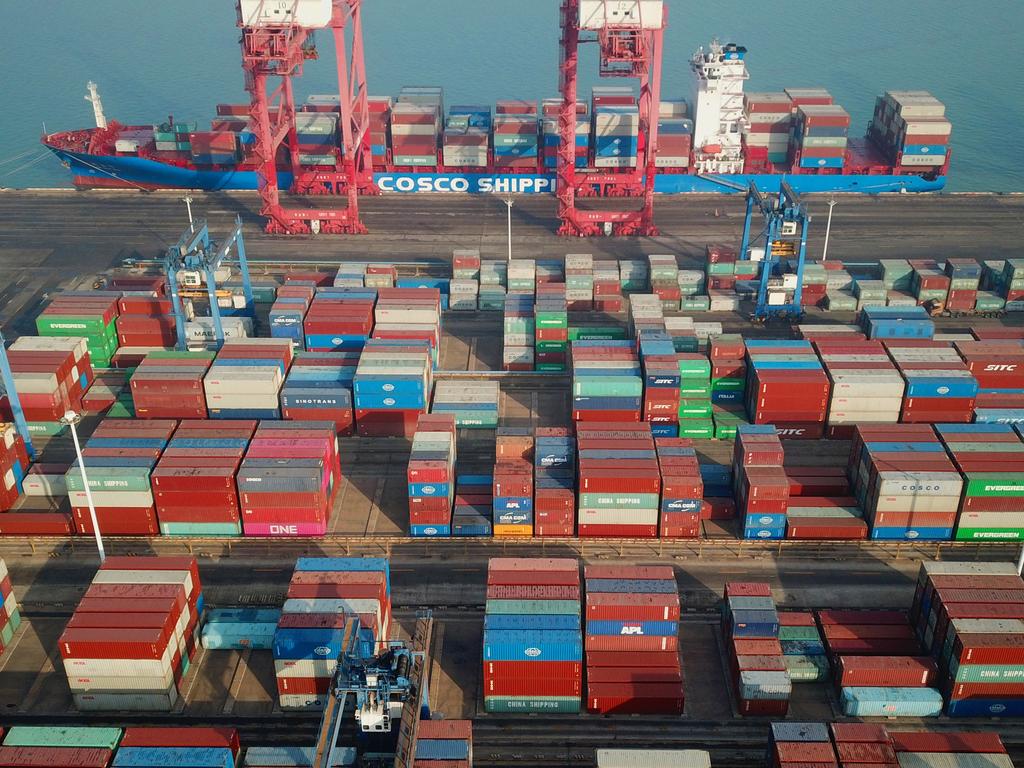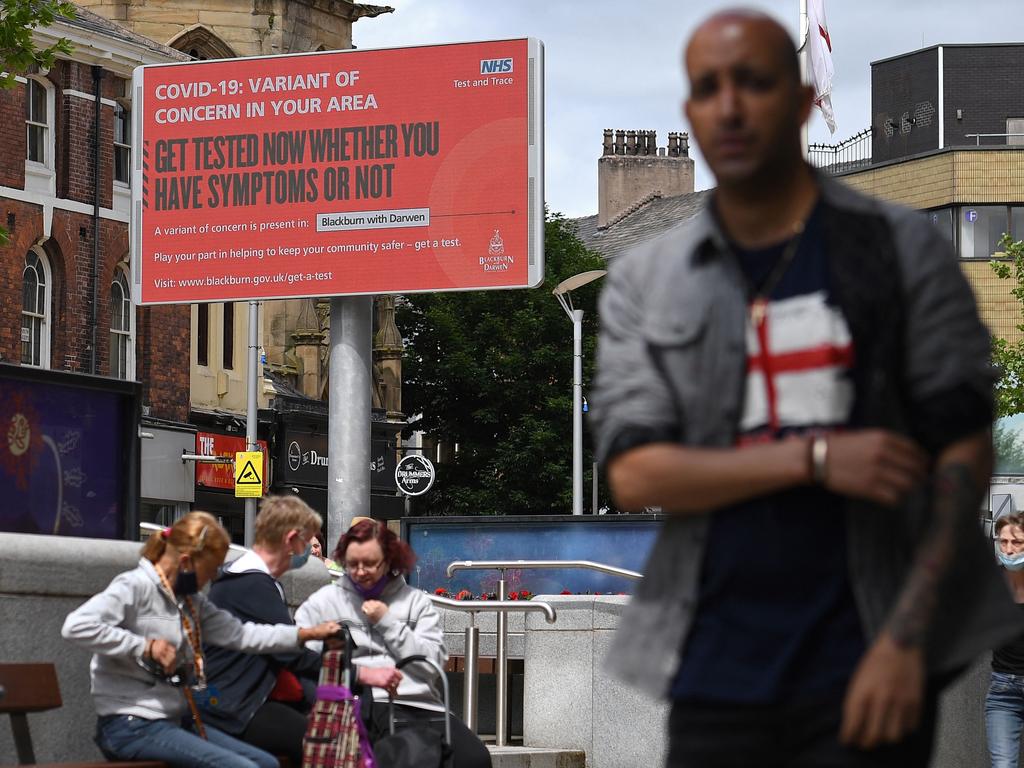Highly infectious Delta variant quickly taking over the world
As NSW faces a new Covid-19 outbreak, the Delta variant is running rampant around the world, leaving chaos in its wake.

As the Delta variant threatens a looming Covid-19 outbreak in New South Wales it seems Australia is not alone.
Today two more Covid-19 cases were recorded in Sydney, taking the eastern suburbs cluster up to six.
Speaking on the Delta variant, NSW Health Minister Brad Hazzard said: “It’s a virus that is very capable of transmitting even when we have very fleeting proximity between the individual who is infectious and any of us who might be passing by.”
The mutation of coronavirus was first detected in India in December 2020, and from data collected so far, it is shown to be much more infectious and deadlier than the original strain.
RELATED: Vaccination rates to drop over AZ rule change

It has now been found in 74 countries worldwide, and it is leaving chaos in its path.
World Health Organisation (WHO) chief scientist Soumya Swaminathan said: “The Delta variant is well on its way to becoming the dominant variant globally because of its increased transmissibility.”
UK restrictions extended as cases explode
Amid a successful vaccination program, the UK was looking forward to easing restrictions and getting some normalcy back to life.
But the Delta strain put an end to that.
After falling dramatically, infection numbers are rising again. On June 17, there were 10,809 new cases reported – up from 8808 the previous day.
Prime Minister Boris Johnson has now put on hold an easing of restrictions due to take place on June 21, saying it would be “sensible just to wait a little longer”.
The planned end to lockdown has been delayed by four weeks to July 19 as the country scrambles to get the rise in infections under control again.
RELATED: Urgent talks over vaccine shock

Public Health England (PHE) said younger people are driving the rise in Delta cases – which have soared by 79 per cent in just one week, while hospital admissions have almost doubled.
Dr Jenny Harries, the chief executive of the UK Health Security Agency, said: “Cases are rising rapidly across the country and the Delta variant is now dominant.
“The increase is primarily in younger age groups, a large proportion of which were unvaccinated but are now being invited to receive the vaccine.”
The Delta strain was first detected in the UK at the end of March, and in less than three months it is now thought to account for 99 per cent of new Covid-19 cases in Britain.
RELATED: Covid lab leak evidence ‘overwhelming’

Shipping crisis in southern China
The Delta strain is responsible for a Covid-19 outbreak currently sweeping southern China.
This is now causing a huge problem for global trade as the area is a major hub for international shipping. Dock workers to truck drivers have become infected, slowing down operations at the port.
In 2020, the port of Yantian handled the equivalent of 13.3 million six-metre shipping containers, including a quarter of all Chinese trade with the US.
Lars Jensen, chief executive of Vespucci Marine, said: “From port handling in Yantian alone, the sheer number of containers (not vessels) impacted now exceed the number of containers impacted in Suez.”
The Pearl River delta is currently packed with container ships, which must wait for up to two weeks for berths to open up to dock.
According to shipping brokers, there are currently around 160,000 containers waiting at Yantian alone to be loaded on the dozens of ships currently waiting at anchor.
This will have a serious knock-on effect for the global supply chain which in turn will have a major economic impact around the world, almost certainly leading to goods shortages and possibly leading to higher inflation and even a rise in interest rates.
RELATED: New strain is a ‘game-changer’

US set to see Delta become dominant strain
As the US enjoys summer, health experts there are expecting Delta to become the dominant strain in the next few months.
On Friday, Centres for Disease Control and Prevention (CDC) director Rochelle Walensky, in an interview with Good Morning America, repeated calls for people to get vaccinated.
“It is more transmissible than the Alpha variant, or the UK variant that we have here,” she said.
“We saw that quickly become the dominant strain in a period of one or two months, and I anticipate that is going to be what happens with the Delta strain here.
“As worrisome as this Delta strain is with regard to its hyper-transmissibility, our vaccines work.”
Canada Delta cases rising exponentially
The strain was first detected in Canada in early April. Although the Alpha variant is still the most dominant strain in the nation, Delta’s growth has accelerated at an alarming rate.
Data from the Canadian province of Alberta suggests the number of Delta cases is doubling every six to 12 days.

As the country races against time to vaccinate its population, Prime Minister Justin Trudeau has extended a ban on non-essential travel to the US until July 21, vowing not to open the border until 75 per cent of Canadians have had at least one jab.
“The sooner the largest possible number of people get double vaccinated, the sooner we’re going to be able to get back to more and more normality,” he said on Friday.
Moscow extends restrictions as Delta takes hold
Moscow Mayor Sergei Sobyanin has extended restrictions he had imposed this month, as the Russian capital fears a third wave of coronavirus.
Most of the new infections recorded are now the Delta variant.
Earlier this week Mr Sobyanin said that the situation in the capital, home to 13 million people, was deteriorating rapidly.
“According to the latest data, 89.3 per cent of Muscovites [recently] diagnosed with Covid-19 have the mutated, so-called Delta or Indian variant,” the news agency TASS quoted Mr Sobyanin as saying on state television.

Why Delta variant is of such concern
The B16172 strain of Covid – now known as the Delta variant – was first identified in India in December 2020.
It is a highly infections mutation of coronavirus – estimated to be 40-60 per cent more contagious than the Alpha variant – and according to research out of the UK it is twice as likely to lead to hospitalisation in those infected compared with the Alpha variant.
Do vaccines still work against it?
The Delta variant is more resistant to vaccines than other strains of coronavirus. However, evidence shows they still work against it after two doses.
Data recently published by Public Health England, showed vaccination with the Pfizer and AstraZeneca jabs was as effective at preventing hospitalisation in the case of the Delta variant as they are in the case of the Alpha variant.
Two doses of the Pfizer jab prevent 96 per cent of hospitalisations from the Delta variant, while the AstraZeneca vaccine prevents 92 per cent, according to a study involving 14,000 people.
The data showed the Pfizer vaccine was more effective at protecting people from infection.
Pfizer was found to be 88 per cent effective against the Delta variant two weeks after the second dose, compared with 93 per cent efficacy for cases caused by the Alpha variant.
Two doses of AstraZeneca were found to be 60 per cent effective against Delta cases, compared with 66 per cent for Alpha.




